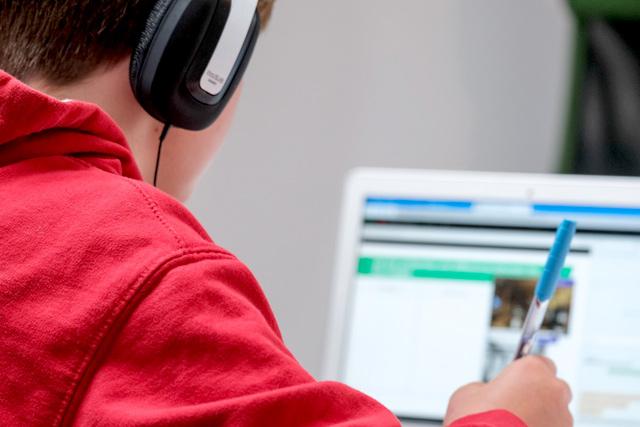You are here
JNCW survey throws light on impact of remote learning
By Rayya Al Muheisen - Jun 16,2021 - Last updated at Jun 16,2021

Representative image (Photo courtesy of unsplash.com)
AMMAN — Eighty-two per cent of students who participated in a survey by the Jordanian National Commission for Women (JNCW) said they receive better education in classrooms compared with remote learning.
The survey covered students from grades 6th to 12th in both public and private schools as well as parents across the Kingdom, according to the JNCW report, a copy of which was made available to The Jordan Times.
The survey focused on the long- and short-term academic and psychological effects of online schooling on students and how the absence of in-class education affects parents and families.
The survey also highlighted the socio-economic challenges facing online schooling in Jordan.
The survey showed that 24 per cent of students do not have Internet access, while 23.4 per cent had problems with the Internet connection and 41.4 per cent of parents could not provide a smart device per child.
The number of devices in households is often limited which can be very inconvenient, the report observed.
Students lack effective communication skills during online learning and do not find online schooling as engaging as traditional schooling, parents said according to the report.
Some students surveyed in the report said that they cheated to get better results in their tests and assignments, which means that teachers were unable to assess students’ progress throughout the year, according to the survey.
Online schooling for younger children is difficult for parents as many have to spend most of their time helping their children navigate through the platforms, explaining the curriculum and working with them on homework, the report said.
The socio-economic state of the family played a vital role in the efficiency and effectiveness of online schooling. Disadvantaged households do not use online education resources for distance learning at the same rates as higher-income households. Parents who do not have IT skills are unable to help their younger kids with technical problems that occur during class, according to the survey’s findings.
The level of education for parents was highly linked with the online performance of the children, the report said.
Not all children have the means to attend online classes. Availability of smart devices varies among households as well as parents’ ability to pay Internet bills and provide a good home environment for children — space, chairs, desks — at their home, the survey showed.
According to the survey, 66.2 per cent of the online schooling load was put on mothers. Additionally, 32 per cent of mothers have fulltime jobs and in some cases these jobs required physical attendance in the workplace, which means they had to leave their children unsupervised during online classes, according to the survey.
Among other findings of the survey are 76 per cent of public-school students and parents said that “Darsak’’ portal is not user friendly for students. Moreover, 39 per cent of the surveyed parents had to hire private teachers to fill the education gap for their kids.
Some of the negative social effects of online schooling on children were: Increased verbal and physical abuse of children, lack of communication skills between family members and domestic violence. Children’s mental health was also affected due to extended screen time, the survey said.
According to mothers interviewed by The Jordan Times, children developed erratic sleep habits and were experiencing emotional and mental distress.
Furthermore, they said kindergarten students did not have a chance to develop their motor or social skills over the past 18 months.
Related Articles
AMMAN — Over 16 per cent of students in Jordan lack Internet access, which is 16 percentage points below the Organisation for Economic Coope
AMMAN — The Abdul Hameed Shoman Foundation (AHSF) on Monday organised a dialogue session titled “The Impact of Two Years of the Pandem
Since the coronavirus outbreak in March this year, online distance learning has become the cornerstone of education in Jordan.













